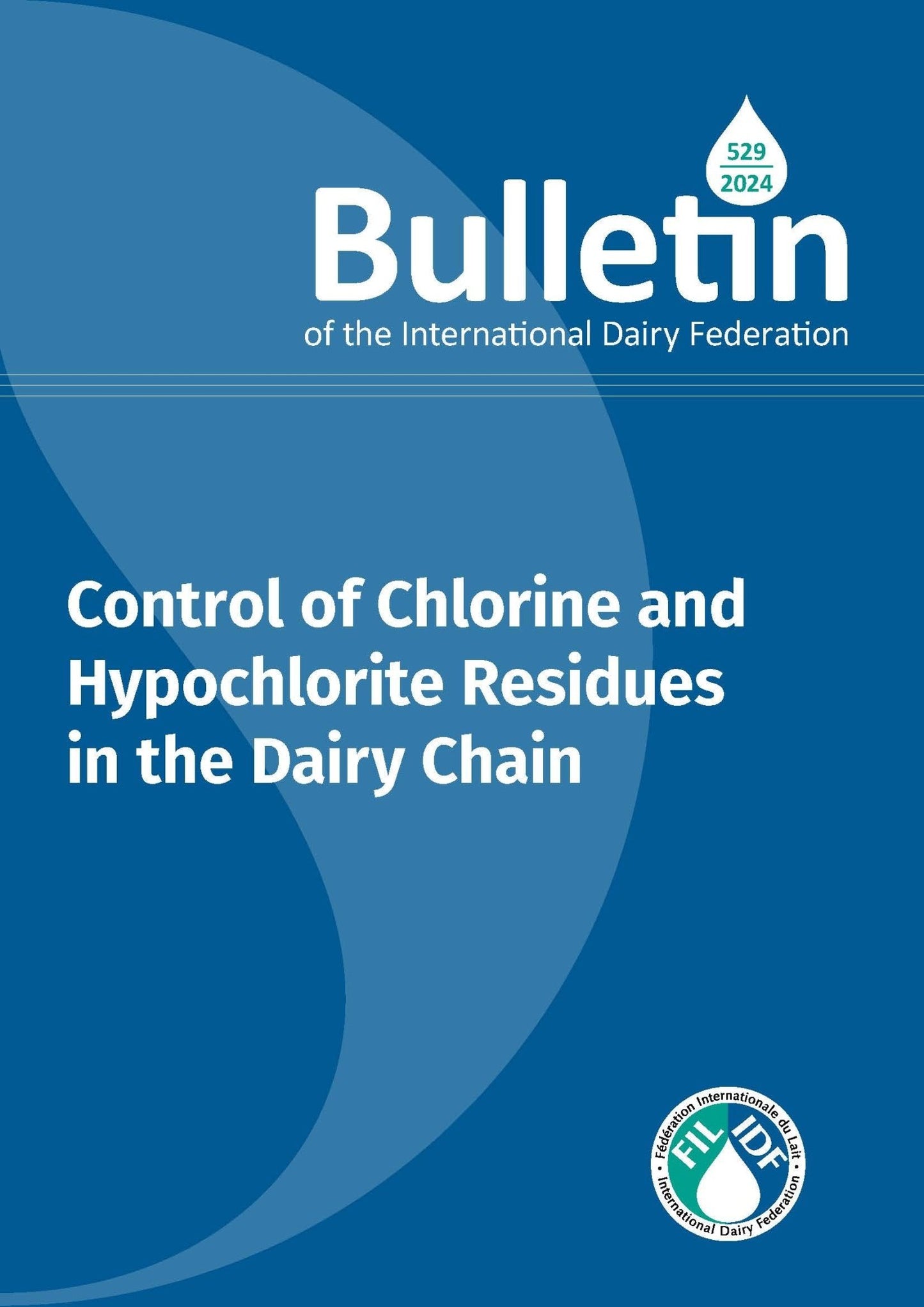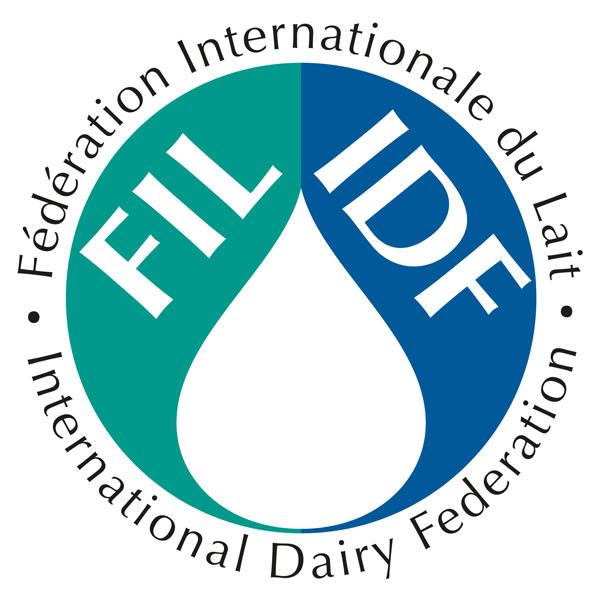Bulletin of the IDF N°529/2024: Control of Chlorine and Hypochlorite Residues in the Dairy Chain
Couldn't load pickup availability
Document info
| doi | 10.56169/XQUI6258 |
|---|---|
| pages | 48 |
| published date | 28 August 2024 |
| reference | Bulletin of the IDF N°529/2024 |
Publication description
Chlorine-based products are widely used in both dairy farming and dairy processing as effective equipment cleaners and sanitizers, as well as for teat disinfection. They have antimicrobial activity against a wide variety of bacteria, virus, and fungi. The critical overall parameter required to achieve a lessening of chlorine derivative residues in milk is the appropriate use of the cleaning or sanitizing product according to manufacturer label recommendations. Some chlorine containing products, particularly if improperly used, have the potential to generate chemical residues, some of which give rise to human health concerns. The residues in milk potentially arising from the use of chlorine based cleaning and sanitizing solutions are chlorite, chlorate, perchlorate, trichloromethane (TCM), cyanurate, and chlorhexidine. Regulatory agencies in several geographies have developed tolerance levels for one or more of these substances using a “reasonable certainty of no harm” approach. This document provides an overview of the chlorine containing compounds in use in the dairy supply chain, the possible occurrence of residues, their potential risk to human health, regulatory limits, detection methods, and mitigation strategies to minimize the risk of residues present in dairy products. Ultimately the risk of deleterious residue levels in dairy products is greatly reduced if: 1) chlorine containing compounds are stored, prepared, and used in full accordance with recommendations and labelling, 2) there is adequate rinsing, and 3) there is adherence to commonly accepted Good Manufacturing Practices (GMPs).
Cite this content as:
International Dairy Federation. (2024). Control of chlorine and hypochlorite residues in the dairy chain (Bulletin of the IDF N° 529/2024). https://doi.org/10.56169/XQUI6258


